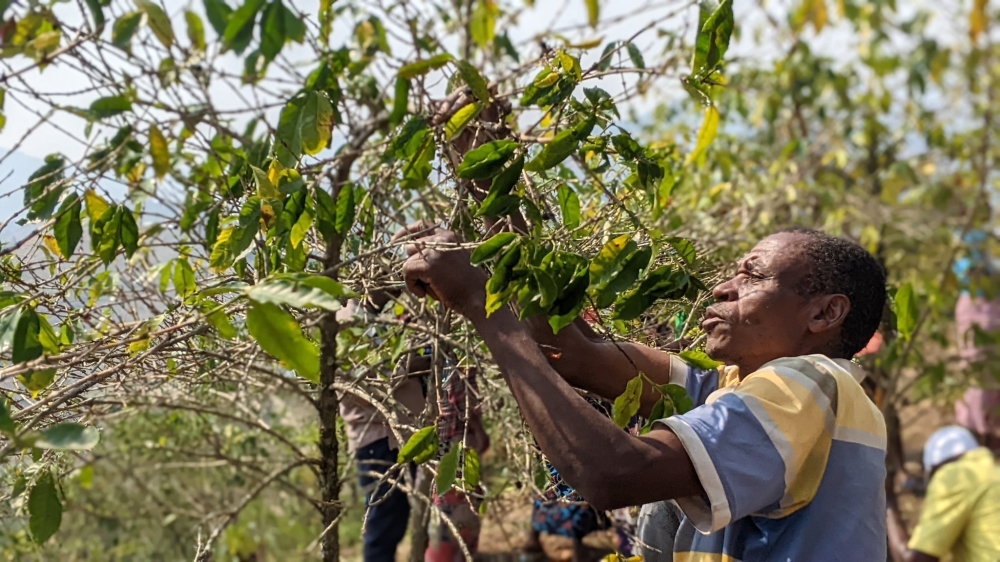

The National Agricultural Export Development Board (NAEB) has launched a new initiative to replace aging coffee trees countrywide, as part of efforts aimed at increasing production and industry sustainability.
ALSO READ: Top 10 countries consuming Rwanda’s coffee
According to data from NAEB, Rwanda currently has 42,229 hectares of coffee plantations, of which 26.8 percent are too old to yield many berries and do not bring in much money.
ALSO READ: Over 3 million coffee trees to be replaced
The initial phase of the restoration programme runs in Karongi, Nyamasheke and Rusizi districts in Western Province and Ruhango, Huye and Nyamagabe districts of Southern Province.
Addressing coffee producers, farmers, and local authorities in Rubengera Sector, Claude Bizimana, the Chief Executive Officer of NAEB, Tuesday, August 13, said the initiative aims at increasing productivity and part of mobilising people for the benefits of rejuvenation and rehabilitation of coffee trees.
ALSO READ: Bourbon’s role in Rwanda’s growing coffee culture
"We are replacing aging trees, some of which are 30 years old, and others planted during colonialism. This is in line with scaling up coffee production,” Bizimana told journalists in Karongi District.
Within four years, according to him, 1,000 hectares will be restored, replacing 3,000 hectares of aging coffee trees within 14 districts with most of the aging coffer trees. It is expected that the upgrading and restoration of coffee trees will see Rwanda’s coffee production triple.
For example, as noted, an aging coffee tree can produce about one or two kilos per season, while after its rejuvenation it can produce between 2.5 and 4 kilos.
Theophile Niragire, the Vice Mayor in Charge of Economic Development in Karongi District, said the upgrading and restoration of coffee trees was gradually done by farmers whenever resources were availed. The district plans to restore over 40 hectares of coffee plantations.
He stated: "Providing coffee seedlings as part of the initiative will support our farmers, for they have been encountering various challenges.”
Official figures by the district show that there are over three million coffee trees, of which 70 percent need to be replaced or rehabilitated.
ALSO: Coffee producers appeal for more seedlings
Coffee farmers like Donath Musabimana, an agronomist of KOPAKAKI, a local coffee cooperative in Rubengera Sector, welcomed the government’s interventions towards boosting coffee production.
Alphred Rudahemuka, a farmer with 800 coffee trees, said: "Access to fertiliser for many of us is still a challenge, and you find that old people with limited resources are the only category engaged or own coffee trees.”
Figures show that in 2023, Rwanda exported approximately 20,000 tonnes of coffee, which generated $116 million.


